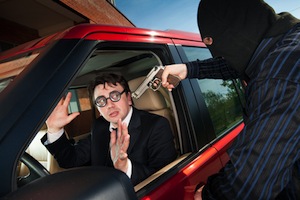Direct and Circumstantial Evidence

When a defendant is charged with a felony or misdemeanor offense, the People must be able to prove the defendant’s guilt beyond a reasonable doubt in order to convict him or her. The prosecution is obligated to divulge all relevant discovery material in advance, including the evidence they intend to bring against the defendant. Evidence can either be direct or circumstantial. It is important to understand the distinction between these two types of evidence as there are often many myths and misconceptions surrounding what type of evidence can be used at trial.
Direct evidence is evidence that, if believed, directly proves a fact. Usually, in criminal cases direct evidence will be eyewitness testimony regarding something that was actually observed. Circumstantial evidence, which is also called indirect evidence, does not directly prove that the defendant is guilty of an offense, however it is evidence of another fact that could lead to the conclusion or inference that the defendant is guilty.
For example, in a battery case the prosecutor may present direct and circumstantial evidence of the crime. If the victim or an eyewitness testifies that the defendant unlawfully struck him or her, this would be considered direct evidence of battery. The prosecution may also present photographic evidence of the victim’s injuries. This evidence would be considered circumstantial evidence, because they jury would have to “connect the dots” in order to conclude that the defendant caused the injuries and thus is guilty of a battery offense.
There is a common misconception that circumstantial evidence cannot be used to convict a defendant of a crime. There is no evidence rule that prohibits a prosecutor from introducing circumstantial evidence or even from solely relying on circumstantial evidence when presenting a case against a defendant. In fact, there may be situations where circumstantial evidence is stronger than direct evidence, especially when the person testifying about what they directly witnessed is unreliable or has been shown to be untrustworthy.
In many cases, the prosecutor must rely on circumstantial evidence in order to prove a necessary element of the crime charged. Many offenses require that the prosecutor prove intent. For example, murder charges require a showing that the killing was committed intentionally with “malice aforethought.” In addition, burglary requires the People to prove that when a defendant gained entry into a building or residence, he or she intended to commit a crime.
When a person is caught shoplifting, the prosecutor may only be able to prove petty theft, which is a misdemeanor level offense. However, if the prosecutor can show that the defendant intended to steal when he or she entered the store, the defendant can be charged with burglary. To prove this charge, the prosecution would almost always rely on circumstantial evidence, such as the fact that the defendant did not enter the store with his wallet or any cash, which would show that the defendant intended to steal and not shop when he entered the business. In these cases, the only direct evidence may be the defendant’s own confession that he intended to commit a theft when he entered. Because this type of direct evidence is rarely available, a prosecutor would therefore need to have good circumstantial evidence to show intent.
There are limitations to how circumstantial evidence can be used. A prosecutor must still prove every element of the offense beyond a reasonable doubt. Before a jury can convict someone solely based on circumstantial evidence, the prosecutor must convince the jury that the only reasonable conclusion that can be drawn from the circumstantial evidence is that the defendant is guilty beyond a reasonable doubt. This can be a difficult, especially in situations where the circumstantial evidence may point to other possibilities or reasonable explanations. Having a knowledgeable and experienced criminal defense attorney can be crucial when the prosecution is attempting to prove a case solely on circumstantial evidence.
If you have been accused of a felony or misdemeanor offense or are currently under investigation, it is critical that you meet with a Los Angeles Criminal Defense Lawyer as soon as possible. As a former Deputy District Attorney with over 14 years of prosecutorial experience, Los Angeles Criminal Defense Attorney Michael Kraut is highly respected as a highly effective litigator who how to effectively challenge both direct and circumstantial evidence.
For more information about Los Angeles direct and circumstantial evidence, contact Los Angeles Criminal Defense Attorney Michael Kraut at the Kraut Criminal & DUI Lawyers located at 6255 Sunset Boulevard, Suite 1520, Los Angeles, CA 90028. Mr. Kraut can be reached 24/7 at 888-334-6344 or 323-464-6453.
 Kraut Criminal & DUI Lawyers Home
Kraut Criminal & DUI Lawyers Home















 Los Angeles Criminal Defense Attorney Michael Kraut providing legal defense services for clients in the greater Los Angeles Metropolitan Area, including
Los Angeles Criminal Defense Attorney Michael Kraut providing legal defense services for clients in the greater Los Angeles Metropolitan Area, including